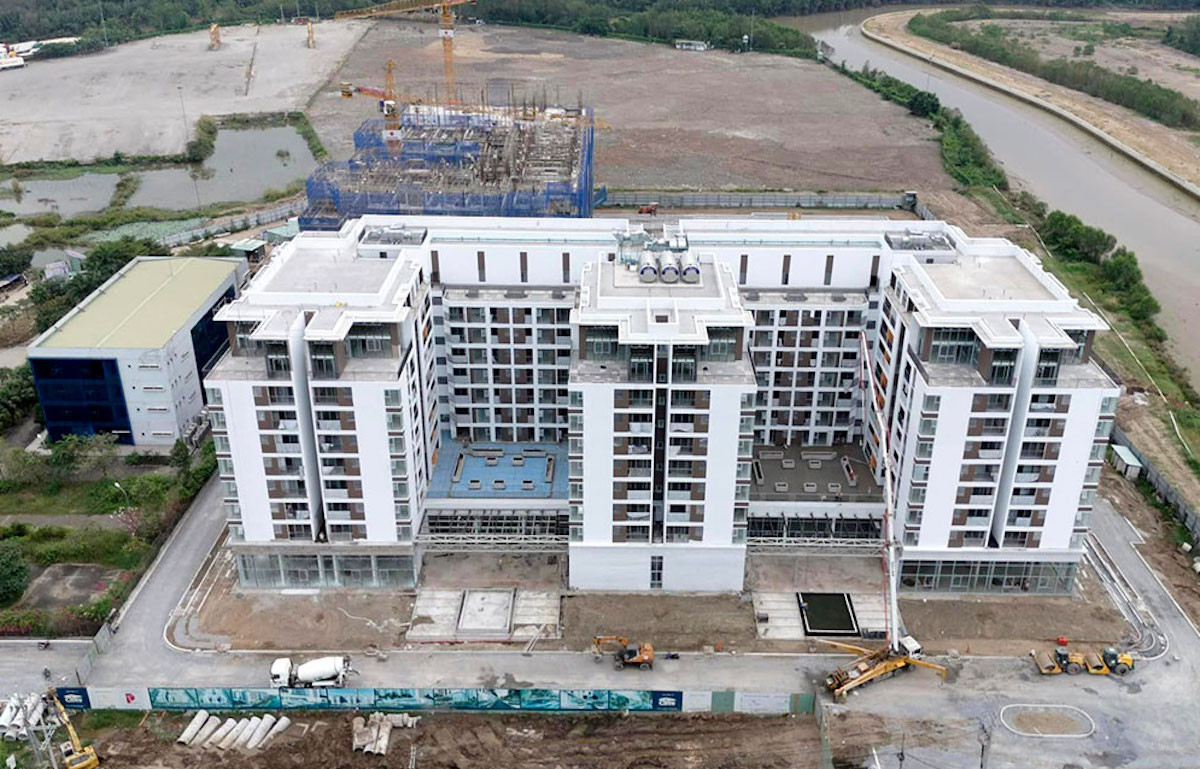
Ha Quang Hung, deputy director of the Housing and Real Estate Market Department, said the state encourages the development of social housing projects by giving direct support to buyers and indirect support via realtors.
The government is implementing a project on developing at least one million social housing apartments for low-income earners and Industrial Zone workers in 2021-2030, under which local authorities are assigned to develop certain number of social housing products.
Meanwhile, policies related to social housing development became more open recently when expanding the beneficiaries and loosening conditions on residence and income.
Nguyen Van Dinh, chair of the Vietnam Association of Realtors (VAR), confirmed that many required procedures have been removed recently, while many barriers to investors have been eliminated.
Commercial banks have also participated in the 1 million apartment development project with a preferential credit package worth VND120 trillion.
According to Dinh, in the long term, the state needs to play a decisive role in social housing development, from land bank arrangement and capital arrangement to simplification of procedures for buyers. Real estate firms just act as ‘contractors’ who are hired to develop this type of housing.
Having developed social housing projects for 20 years, Truong Anh Tuan, president of Hoang Quan Group, pointed out that there must be three factors for people to buy social housing: reasonable policies, loans, and buyers’ monthly savings.
In terms of policy, according to Tuan, social housing has never been supported so well by the state as now. In terms of capital mobilization, social housing buyers now can borrow at preferential interest rates of 6.6 percent per annum. And finally, every buyer needs to have savings.
“If one wants to buy a social housing apartment worth VND1 billion, they need to save at least VND5-7 million a month. If this can be done, social housing will be within reach,” he said.
“Social housing products have become cheaper than ever, just equal to 20 percent of commercial housing products’ value,” he commented.
Noting the preferential credit package offered to both realtors and social housing buyers, Tran Hoang Nam from the HCM City University of Economics and Finance said the credit package sphere has been expanded with VND145 trillion worth of capital ready for disbursement. To date, nine commercial banks have participated in the program.
The interest rate of the credit program applied from July 1 to the end of the year is 6.5 percent per annum. However, Nam thinks the interest rate remains high.
In principle, buyers can get loans from other sources, including the Bank for Social Policies.
Dao Anh Tuan, director of Tay Ninh branch of the Bank for Social Policies (BSP), said the biggest difficulty of the bank is capital arrangement, as the capital of the bank is provided by the government.
Under Decree 100/2024, since August 1, all branches of the bank must raise lending interest rates (applied to social housing projects) from 4.8 percent to 6.6 percent per annum.
Tuan explained that the interest rate of the loans provided to poor households as announced by BSP is 6.6 percent per annum. Therefore, the loans provided to social housing buyers must not be lower than 6.6 percent to ensure fairness for borrowers.
According to Can Van Luc, a respected economist, in order to successfully implement the project on developing 1 million social housing products by 2030, there must be cooperation of four parties, including the state, commercial banks, investors and buyers.
The state needs to publicize detailed planning of land banks, complete social infrastructure, and define demand for social housing in every region.
Commercial banks need to have preferential capital sources. Investors need to prepare well in capital and an ecosystem in order to optimize their investment process, and control the quality of construction works.
Meanwhile, buyers need to prepare financially by saving money and using reasonable financial leverage.
Regarding loans from BSP, Luc confirmed that the lending interest rate has increased from 4.8 percent to 6.6 percent.
“In order to cut interest rates of loans provided to social housing buyers, the government and the State Bank of Vietnam need to first cut the interest rates provided to poor households,” Luc said.
Hong Khanh